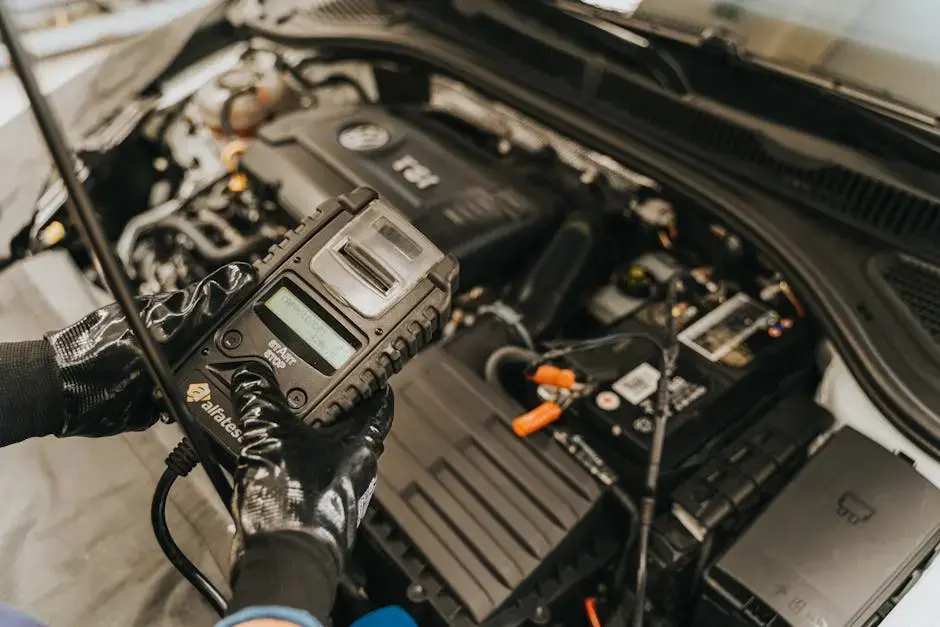7 Common Signs Your Car AC Needs Repair
- Kathryn Fitzgerald
- May 21, 2025
- 4 min read
Is your car's air conditioning not quite up to par? It can be frustrating when you expect a refreshing breeze on hot days and instead get warm, stale air. Understanding the signs that indicate your car AC might need repair can save you time and money in the long run. Let's dive into the most common symptoms to watch out for!

1. Weak Airflow from Vents
If the air coming from your AC vents feels weak, it could signal a problem with the blower motor or a clogged filter. Both factors can limit the airflow and impact your comfort during those scorching days. But how can you be sure? One easy test is to check if you can feel a significant difference when adjusting the fan speed. If cranking it up doesn’t blow stronger air, then your AC system might need a further inspection.
Weak airflow isn't just annoying; it can indicate deeper issues within your AC system. Clogged filters could reduce efficiency, while motor malfunctions can lead to more costly repairs. It's essential to investigate these symptoms as neglecting them might escalate the problem, ensuring that you face an even hotter commute.
2. Unpleasant Odors in Your Car
Strange smells emanating from your AC system can indicate mold or mildew buildup. Don't ignore this issue, as it can not only bother your senses but also lead to health problems. It’s a common scenario when you first turn your AC on after months of disuse; a musty odor wafts through the cabin, leaving you puzzled and a bit nauseous.
To combat this issue, regular maintenance and cleaning of your AC system can make a world of difference. Special treatments can eliminate mold and odors, helping you breathe easier. If the smells persist, consider consulting a car professional who can diagnose and address the root cause. Remember, staying ahead of this can keep both your vehicle and your health in check!
3. Insufficient Cooling
If your AC is blowing warm air instead of cool, it could be a sign of a refrigerant leak or a malfunctioning compressor. Making sure your AC is functioning properly is crucial for your comfort. Imagine cruising down the road with the sun beating down, only to realize the inside of your car feels like an oven. Frustrating, isn’t it?
The first step is often to check the refrigerant levels. Low levels indicate a leak that needs addressing before it leads to further damage. Additionally, a faulty compressor could be to blame, which is a more significant repair requiring a professional’s touch. Quick diagnosis is critical here—don't let the heat get the best of you!
4. Strange Noises When AC is On
Listen closely for any unusual sounds, like clunking, hissing, or grinding, when you turn on the AC. These noises can indicate loose or damaged components that need immediate attention. It’s often the case that these sounds will become more pronounced over time, so recognizing them early can save you a heap of trouble and money later.
Furthermore, don’t hesitate to take note of patterns. For instance, if the noise only occurs when accelerating, it may point to a specific issue, such as the compressor engaging. Having this information handy when you consult a technician can significantly streamline the repair process and ensure your vehicle gets the right treatment.
5. Frequent Cycling On and Off
If you notice your AC turning on and off repeatedly, it might be struggling to maintain a consistent temperature. This could be due to a faulty thermostat or an issue with the system pressure. Hearing that dreaded click-click-click, only to feel sporadic bursts of cool air, can leave you frustrated on hot summer days.
When your AC cycles frequently, it not only affects your comfort but can also increase your fuel consumption and stress the overall system. Ignoring this symptom may lead to bigger problems, including complete system failure. Thus, it’s wise to address this concern sooner rather than later, ensuring your comfort and your vehicle’s efficiency last longer.
6. Moisture Buildup Inside the Vehicle
Excess moisture in your vehicle could mean your AC's drainage system is blocked or damaged. This can lead to water pooling inside, creating an unpleasant and potentially damaging environment. Visual indicators of stuck moisture include damp spots on carpets or musty smells, which are certainly not a welcome sign.
Ensuring that the drainage system is functioning properly is essential for maintaining a dry interior, which also helps avoid mold growth. Regularly checking the drainage points can help prevent significant issues down the line. If you're noticing this issue frequently, don't wait until it's too late; consider scheduling a professional check-up to diagnose the problem.
7. Visible Leaks Around the AC Components
If you see any coolant in puddles under your vehicle or around the AC components, it’s essential to address this issue promptly. Leaks can greatly affect your AC's performance and need immediate repair. Over time, leaking refrigerant can lead to a system that fails to cool efficiently.
Don’t just wipe it away and forget about it—this is a red flag for potential significant repairs down the line. If you suspect a refrigerant leak, it's crucial to get it checked out by a professional. Addressing such leaks early not only protects your comfort but also safeguards your wallet in terms of future repairs.
If you spot any of these symptoms, don't wait! Call A&E Automotive Solutions for expert car care.


%20No%20Background.png)



Comments